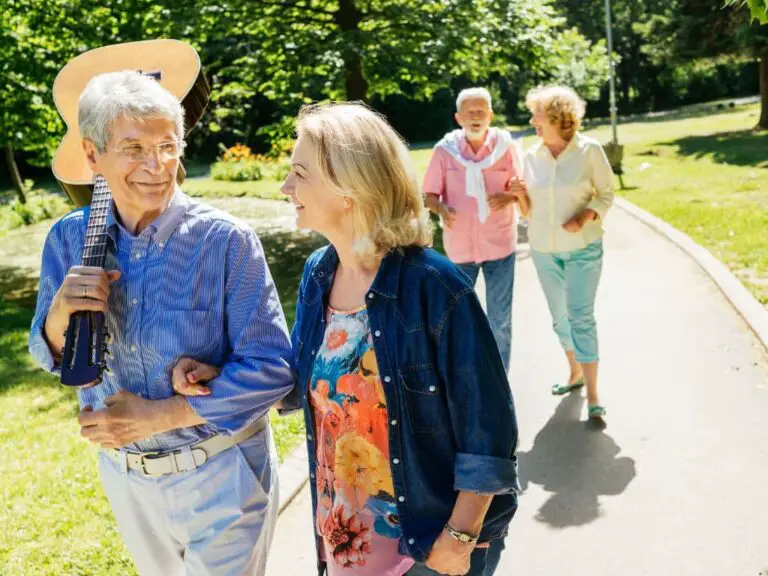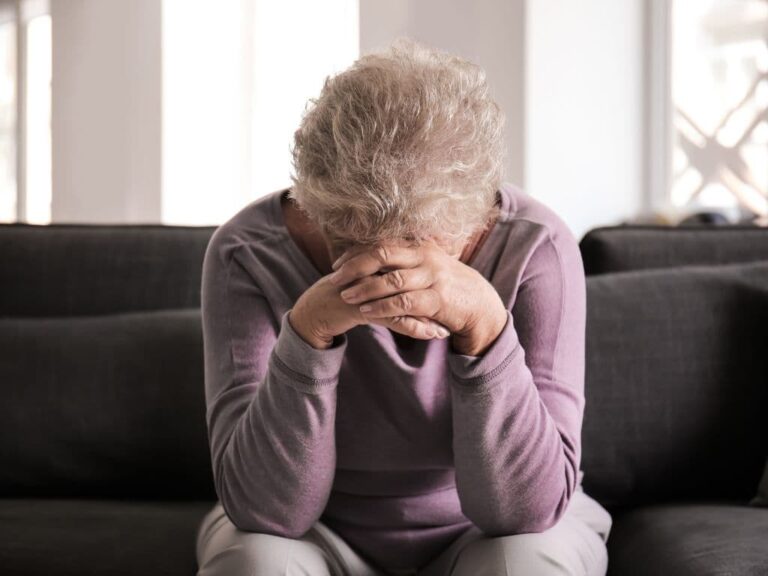Dealing with Negative Elderly Parents: Strategies and Tips
Dealing with negative elderly parents can be very challenging. As parents age and undergo various physical and mental changes, they may become increasingly pessimistic, critical, or withdrawn. While this behavior can stem from factors like chronic pain, dementia, or simply the life circumstances of growing older, it still takes a toll on family members providing care and support.
To deal with negative elderly parents, understand the root causes of their negativity, communicate effectively using empathy and patience, set boundaries, and engage them in positive activities. Seek professional help if needed, ensure their basic needs are met, consider therapy or counseling for them and take care of your own mental health by seeking support from others.
With empathy, patience and proper coping techniques, it is possible to have a more positive relationship with elderly parents struggling with negativity. This article provides strategies and tips for constructively dealing with negative elderly parents.

Understanding the Causes of Negativity in Elderly Parents
Before responding to your parent’s negativity, it’s helpful to reflect on what may be motivating it. Here are some common causes:
Health Issues: Chronic pain, fatigue, loss of mobility, and conditions like dementia can all contribute to irritability and melancholy in the elderly. Be compassionate and recognize the discomfort or anxiety your parent may be experiencing. Gently suggest seeing a doctor to address any untreated medical issues.
Loneliness: With their social circles shrinking, elderly parents can feel very isolated. Making efforts to engage them and stimulate mental activity is key. Help them connect with peers and participate in hobbies.
Boredom: Empty hours without purpose can feed unhappiness. Structure their days with activities, visits, and tasks that provide meaning.
Loss of Independence: No longer being able to drive or manage their affairs can be demoralizing. Find ways to make them feel empowered and offer care in respectful ways.
Grief and Loss: Losing a spouse or friends is painful. Allow them to express their sadness and offer comfort. Reminisce about happy memories from their past.
Helplessness: Being dependent on others contradicts a lifetime of adulthood. Reassure them of their value and focus on their abilities.
If you need more insight into the potential reasons behind your mother’s negativity, check out this helpful article on why elderly parents become negative. This provides an in-depth look at the common psychological and situational causes.
How to Communicate Effectively with Negative Elderly Parents
When elderly parents are frequently pessimistic or critical, it can strain your relationship. But avoiding them only worsens their isolation. With care and skill, you can enhance communication and connection.
Be patient and allow venting: Don’t react defensively to complaints or criticism. Let them express their feelings and frustrations fully. Show you are listening through eye contact, nodding and verbal affirmations.
Use empathy: Imagine yourself in your parent’s shoes, facing the losses and changes of aging. Convey that you understand their sadness, anger or worry. Share your desire to help them feel happier.
Ask questions: Gently inquire about the root of their unhappiness. Is it pain, discomfort, boredom, loneliness? Understanding the source allows you to address it constructively.
Suggest solutions: After listening to their concerns, offer pragmatic steps to improve the situation. This shows you care about their wellbeing and makes them feel hopeful.
Find compromise: If you feel mistreated, clearly but calmly explain your feelings and needs. Seek compromise so you both feel respected in your interactions.
Infuse positivity: Share good news, make them laugh, and focus conversations on positive aspects of life and the future. This lifts their spirits and outlook.
Strategies for Dealing with Negative Elderly Parents
When elderly parents frequently complain, criticize and focus on the negative, how can you cope while still supporting them? Consider these constructive strategies:
1. Practice Patience and Empathy
Remember that their behavior likely stems from emotional hurt or unhappiness rather than the desire to upset you. Approaching interactions with patience and putting yourself in their shoes will help you respond with compassion rather than frustration.
2. Set Boundaries
If certain criticisms or controlling behaviors cross the line, calmly explain what you will no longer accept from the relationship. But set reasonable limits that don’t isolate them further.
3. Seek Professional Help if Needed
If your parent’s negativity interferes significantly with daily functioning, consult with their doctor. Certain medications or therapy could improve mental health issues like depression or anxiety.
4. Engage Them in Positive Activities
Boredom and purposelessness fuels negativity. Stimulate their mind and brighten their mood with activities like crossword puzzles, painting, volunteer work or watching funny movies together.
5. Encourage Social Interaction
Schedule visits from friends and relatives. Help them attend a senior center or join a club. Social bonds provide emotional support and reduce isolation.
6. Ensure Their Basic Needs Are Met
Discomfort from being hungry, cold or having an unclean environment can spark moodiness. Make sure they have proper nutrition, clothing, safety accommodations and hygiene.
7. Address Any Medical Issues
Unmanaged health problems that cause fatigue or pain understandably lower one’s happiness. Ensure they are receiving proper care and medication for existing conditions.
8. Consider Therapy or Counseling
If your parent struggles with grief, trauma, excessive worrying or other emotional difficulties, professional counseling can help them regain a healthier outlook.
9. Take Care of Your Own Mental Health
You cannot help your parent if you become emotionally drained. Make sure to rest, confide in loved ones, and do activities that replenish you. Saying “no” at times is okay.
10. Seek Support from Others in Similar Situations
Joining a support group, even online, allows you to gain new insights and feel less alone. Peers may share effective coping methods that could benefit you.
What Not to Do When Dealing with Negative Elderly Parents
It’s natural to feel hurt or frustrated by constant negativity from elderly loved ones. But responding thoughtlessly can damage the relationship further. Avoid saying:
- “You’re so ungrateful after all we do for you!”
- “Just stop complaining all the time.”
- “You’re too miserable to be around.”
- “You should be more positive.”
- “Nothing is ever good enough for you.”
- “I can’t handle you anymore.”
Comments like these will likely just aggravate your parent and escalate tensions. Keep your cool, use “I feel” statements, and suggest solutions.
How to Cope with the Emotional Stress of Dealing with Negative Elderly Parents
Contending with frequent criticisms, complaints and pessimism is draining over time. To preserve your own mental health while supporting an elderly parent, be sure to:
- Confide in trusted friends and relatives – Share your struggles and get emotional support.
- Set boundaries on your involvement – Limit your visiting hours and availability to avoid burnout.
- Make time for self-care – Invest in your own wellbeing through healthy habits and stress relief.
- Join a caregiver support group – Connecting with others facing similar challenges makes them feel less alone.
- Consider therapy – A therapist can help you handle negative emotions in a healthy way.
- Forgive yourself for mistakes – You won’t always respond perfectly, and that’s okay. Just reflect on what you can improve.
- Focus on the positives – Remind yourself of what you appreciate about your parent and your time together.
With patience, care and proper coping techniques, you can manage the difficulties of dealing with negativity from an elderly parent. Meeting it with empathy rather than frustration is key.
When is it Time to Consider Assisted Living or Nursing Home Care?
If your elderly parent’s negativity, along with other care needs or safety concerns, becomes too much for you to handle alone, it may be time to consider assisted living or nursing home placement. Signs it’s the right move include:
- You’ve become emotionally drained/overwhelmed despite support
- Their needs have become too physically demanding for you
- They show cognitive decline or psychiatric issues you can’t manage
- They feel constantly angry, anxious or depressed in your home
- You cannot leave them alone safely for extended periods
- The relationship has become adversarial despite efforts to improve it
Choose a facility with staff trained in geriatric mental health. Make the transition gently, visit often, and understand you are not “abandoning” your parent but ensuring they have the proper care.
Conclusion
Coping with negativity from aging parents pushes patience and caregiving skills to the limit. But by employing empathy, healthy communication strategies, proper assistance and self-care, you can both improve the relationship’s tone and enhance their quality of life. With firm boundaries, structured activities and medical guidance, their outlook can brighten. And your own mental health will benefit from honoring your needs too. Stay hopeful, accept imperfections, celebrate small victories and rewards. With time and creativity, the challenges can be managed.
Frequently Asked Questions
-
What happens if you are old and alone?
It has serious consequences. Older adults who feel lonely may have difficulty completing their daily tasks and experience cognitive decline. They are also more likely to develop coronary heart disease, Alzheimer’s, or even death.
-
What is the most common health concern after age 65?
Heart disease. Adults over 65 are most likely to die from heart disease. High blood pressure, high cholesterol and other conditions must be treated properly. It is important to take good care of your heart to prevent developing heart disease later in life.
-
What are the rights and privileges of a senior citizens?
Senior citizens have the right to independence and privacy. They can also make their own decisions about their home and property. Protection from abuse, violence and neglect.
-
What are the benefits and or privileges of senior citizens under Republic Act No 9994?
Two (2) provisions have been added to RA 9994 to directly benefit seniors: a) A monthly social pension of P500 will be paid to senior citizens who are indigent; and. b. Death Benefit Assistance in the amount of P2,000 for those who took care of the senior until their death.
-
Why is there a need to promote wellness in older adults when we know for a fact that they are deteriorating?
Encouragement of exercise and physical activity reduces the risk of heart disease, hypertension and type 2 diabetes. It also lowers your chances for osteoporosis and other diseases. You are also less likely to fall and sustain injury from falling.
-
Why is family important to the care of their elderly member?
Families can play an important role in preventing or delaying institutionalization for chronically ill seniors. Family caregivers provide about 80% of the care (physical, psychological, and economic) in the home.
-
What are the 3 major jobs of a caregiver?
Personal care includes bathing, grooming, dressing and toileting. Cooking basic food: shopping for groceries, cooking, cleaning up after the kids, washing dishes, and doing other chores. General healthcare: Managing medication, prescriptions, reminders for appointments and prescribing medicines.
-
Where do old people go when no one takes care of them?
When someone becomes unable or unable to take their own decision and is no longer able to live on their own, the conservatorship procedure with the courts takes place. Usually, the person ends up in skilled nursing facilities, which are covered under Medicaid.
-
Which of the following is a Programme for the benefit of the elderly?
1. Pradhan Mantri Vaya Vandana Scheme.
-
Why is my elderly mother so negative?
Boredom could be the root cause of senior complaints. As their responsibilities diminish or they retire, it is possible for them to feel that they are entitled to express themselves. Boredom can lead to a lot of negative feelings if the senior feels bored, or if there is no sense of purpose.
-
What are the 7 areas of wellness?
The seven dimensions of wellness are often referred to as mental, physical and spiritual. They all influence one another and are interrelated.
-
Why are the 7 dimensions of wellness important?
The seven dimensions of wellness are often referred to as “wellness”. Every dimension affects our sense of wellbeing or quality of living and impacts and overlaps with the other. While one aspect may seem more important than the other, neglecting any dimension for long periods of time can have adverse consequences on your overall health.
-
What funding programs are the most important for older adults?
The most popular government program to provide senior care is Medical and Health Medicare. Medicaid, which is need-based, is the second-largest program.
-
How will you help in promoting wellness and self care of geriatric?
It doesn’t matter what type of activity you choose to start with. Good nutrition is important for older people. It can not only help prevent chronic diseases, but it also aids in the recovery of illnesses.
-
What happens to elderly with no family?
How can seniors without family face problems? As they get older, many people experience diminished abilities and become less capable of caring for themselves. Some people may not be able walk or drive and have difficulty doing basic tasks (e.g. shopping, cooking, cleaning).






